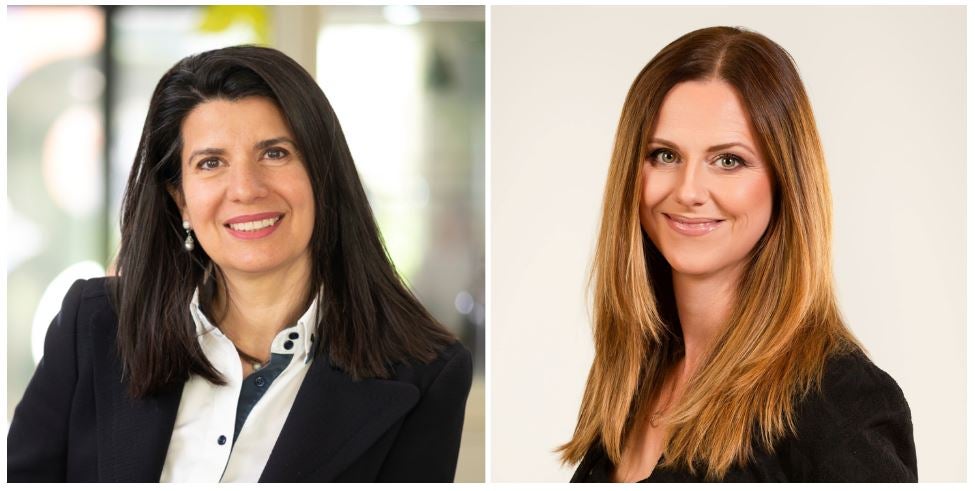large and rapidly expanding SG Equipment Finance is no mean feat.
Particularly if you are the chief financial officer in the middle
of a recession. But Cécile Le Bon, who has this role, tells Jason T
Hesse she is rising to the challenge.
issue she presently deals with on a daily basis in her role as SG
Equipment Finance’s chief financial officer is treasury management
and looking after the technical and strategic matters surrounding
funding and risk.
This begs the question, in the context of the current recession,
of whether her company has sufficient funding lines in place.
“We still have reliable funding sources – this is not an issue
for us,” she says. “Like everyone else, we have seen increasing
costs, but we have not had any problems for funding our
operations.”
As one of Société Générale’s key businesses, SGEF works closely
with the bank to ensure it can continue to finance its customers.
The lessor’s portfolio grew by 8 percent year-on-year to reach
€23.1 billion at the end of November 2008. Despite the credit
crunch changing the way she approaches her role, Le Bon maintains
that SG Equipment Finance will still grow in a focused way in
2009.
“The turmoil will definitely result in opportunities,” she
insists. “We have put in place a focused development plan to push
our business in new areas and to develop additional sources of
revenue.”
At the same time, SG Equipment Finance has reinforced its
operating efficiency plan.
To boost revenue, the lessor has recently developed a new
insurance product, which involves it teaming up with a major global
insurance company to provide insurance on the assets SGEF leases to
its customers.
How well do you really know your competitors?
Access the most comprehensive Company Profiles on the market, powered by GlobalData. Save hours of research. Gain competitive edge.

Thank you!
Your download email will arrive shortly
Not ready to buy yet? Download a free sample
We are confident about the unique quality of our Company Profiles. However, we want you to make the most beneficial decision for your business, so we offer a free sample that you can download by submitting the below form
By GlobalDataLe Bon, a qualified French chartered accountant by background,
joined Société Générale in 2001 after a 10-year career at
PricewaterhouseCoopers. Within three years at SocGen she was
promoted to chief financial officer at SGEF. On top of having 25
local CFOs reporting to her on a regular basis, she consistently
visits at least two local countries every month.
At the start of 2008, before the financial crisis took off in
earnest, Le Bon undertook a review of the treasury management
principles, looking specifically at the liability side of the
balance sheet.
“I wanted to check if we properly covered the liquidity risk on
a portfolio basis,” she explains. “What emerged was that although
we didn’t have any risk in our fixed rate portfolio, there was the
possibility of being faced with some risk in our variable rate
portfolios.”
When liquidity costs started to increase and liquidity sources
began to dry up, Le Bon launched measures with the help of Société
Générale’s treasury centre to close the liquidity gaps by putting
into place longer funding sources.
She explains: “We needed to protect our profitability for 2009
and safeguard the profitability for the future. We needed to
eliminate the liquidity risk at the business level.”
This is one of the key areas that Le Bon looks after – and,
while keen to keep the company growing, she is determined to keep
risk at a minimum.
For example, she does not allow subsidiaries to play with
interest rate and foreign currency swaps.
“I really am reluctant to allow them to use derivatives on a
standalone basis,” she says. “Not because they don’t know how to do
it, but because the IFRS rules are really restrictive.”
Under these rules, it has become more difficult for companies to
demonstrate that they are properly hedging, she adds.
“We have built efficient models to demonstrate the efficiency of
our hedge policy from the accounting point of view. Nevertheless,
it is not 100 percent foolproof,” Le Bon adds.
“So this is why I do not want our subsidiaries to conclude swaps
on a standalone basis except in very specific cases. We essentially
match our liability side as closely as possible to our asset side,
to optimise our P&L account.”
The company does not perform any securitisations or raise funds
on the commercial paper market, either. While SGEF did do some
securitisations two years ago, it says it does not need to raise
funds from external markets, thanks to funding from its parent.
Le Bon explains: “We have never had any balance sheet
constraints, so we have not needed to sell any part of our balance
sheet to others. At the end of the day, we prefer to keep 100
percent of margin within the group as long as we do not have a risk
concentration issue.”
SGEF is, however, keeping a close eye on buying portfolios from
other companies.
“The sharp economic slowdown has led to competitors off-loading
portfolios, so we are selectively and prudently purchasing
appropriate assets,” Le Bon says.
In particular, captives are trying to sell parts of their
businesses as leasing is not necessarily a core business for them
right now.
Le Bon also rules out any acquisitions this year. She says SGEF
entered two significant markets in the past two years so it is
focusing on growth there, first. In October 2007, SGEF entered the
US market, where she says business is “going very well for the time
being”; and last September, the lessor entered Brazil, which has
already made “a promising start”. SGEF also acquired PEMA, a
European truck rental company, in 2008 and will focus on its
integration in 2009.
In the year ahead, SG Equipment Finance will further focus on
the development of its core international vendor programmes and
seize new market opportunities.
“We managed a good year in 2008, both in terms of business and
financial performance, and I am sure we will have new opportunities
in 2009,” Le Bon says. “For now, my focus is to improve efficiency
and increase additional sources of income for the business. I am
confident we will continue to grow this year.”







